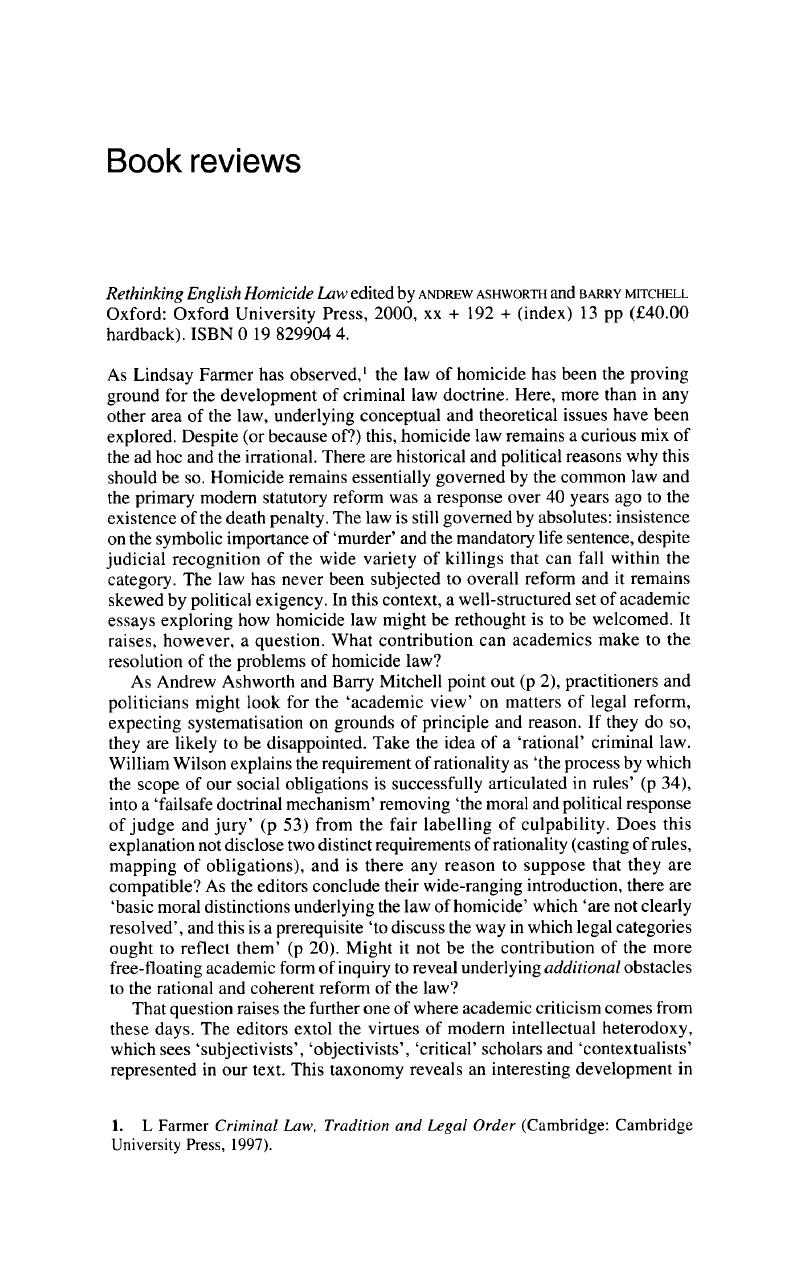No CrossRef data available.
Published online by Cambridge University Press: 02 January 2018

1. Farmer, L Criminal Law, Tradition and Legal Order (Cambridge: Cambridge University Press, 1997).Google Scholar
2. One invidious consequence of this is that I will not discuss three of the essays in this collection: those by Celia Wells on abolishing provocation; by Ronnie Mackay on diminished responsibility; and by Martin Wasik on sentencing reform.
3. Compare Gardner, J ‘On the General Part of the Criminal Law’ in Duff, A Philosophy and the Criminal Law (Cambridge: Cambridge University Press, 1998)Google Scholar and Norrie, A Punishment, Responsibility and justice (Oxford: Oxford University Press, 2000) pp 30–39.CrossRefGoogle Scholar
4. Thinkers in the contextualising vein include John Gardner, Jeremy Horder and Antony Duff, all of whose work is amply cited by the writers in the volume under review. For discussion of Duff's work, see Norrie, n 3 above, ch 6.
5. Legislating the Criminal Code: Involuntary Manslaughter (Law Corn no 231, 1996).
6. Norrie, A Crime, Reason and History (London: Butterworths, 1993) pp 66–70.Google Scholar
7. [1996] 2 Cr App R(S) 72.
8. Norrie, n 3 above. ch 1.
9. I argue this more fully in Norrie, n 3 above.
10. To give one example only, morally substantive ideas operate behind the formal requirements of intention as purpose or foresight of virtual certainty: see ibid, pp 170–181.
11. Williams, G Textbook of Criminal Law (London: Stevens, 1983) p 142.Google Scholar
12. Norrie, n 6 above.
13. N Lacey ‘Contingency, Coherence, and Conceptualism: Reflections on the Encounter Between “Critique” and the “Philosophy of Criminal Law”’ in Duff, n 3 above, p 33.
14. Hart, H L A Law, Liberty and Morality (Oxford: Oxford University Press, 1963)Google Scholar; Devlin, P The Enforcement of Morals (Oxford: Oxford University Press, 1965).Google Scholar
15. Hart, H L A Punishment and Responsibility (Oxford: Oxford University Press, 1968).Google Scholar